Quick answer: The Best Socks5 Proxy in 2025 is Smartproxy!
In today’s digital age, online anonymity is becoming crucial, leading many to explore tools for self-protection. However, understanding the various technologies available can be confusing, especially with multiple methods to conceal one’s real IP address.
SOCKS5 stands out as one of the most effective tools for this purpose. This guide will cover the fundamental aspects of SOCKS5 technology, address common questions, and review top SOCKS5 proxy providers.
1. Best SOCKS5 proxy providers in July 2025
1.1 Smartproxy – Affordable And Reliable SOCKS5 Proxy
Smartproxy ranks among the top global proxy providers, known for its affordable and reliable SOCKS5 proxies. Their service starts at $7.5 per month, offering unlimited bandwidth and an impressive 99.99% uptime. Key features include IP randomization and replacement, enhancing security and performance. Smartproxy claims its SOCKS5 proxies outperform VPNs in speed, with better response times.
The company’s servers are primarily US-based, boasting an average response time of 0.3 seconds. The entry-level plan, Teeny, is priced at $7.5 per month, providing 3 IPs with unlimited traffic. The most premium plan, Main, costs $320 per month, offering 200 IPs with unlimited traffic, averaging to $1.6 per IP monthly. Sequential and non-sequential SOCKS5 proxies are available, with the latter being slightly more expensive.
While Smartproxy is fast, secure, and widely trusted, the only minor drawback is its 3-day money-back guarantee. However, given its high quality, the likelihood of needing a refund is low, as evidenced by its large satisfied customer base.
Pros
- Fast and secure SOCKS5 proxies
- 3 seconds average response time
- Affordable Teeny plan at $7.5/mo
- Enterprise plans are available
- 99% server uptime
- 24/7 support through live chat
Cons
- A very short 3-day money-back guarantee
1.2 Oxylabs
Oxylabs provides high-speed proxy servers optimized for fast, real-time online resource parsing. Their diverse proxy offerings include data center servers, rotating address proxies, static residential proxies, and premium SOCKS5 proxies.
The company boasts over 2 million dedicated proxies across more than 100 global locations, along with a vast pool of over 32 million residential proxies for city-level targeting and reliable parsing. Additionally, Oxylabs’ proxy servers feature unlimited bandwidth, unlimited simultaneous sessions, and unrestricted targeting options.
Price: Oxylabs uses a flexible pricing model with payment for usage, which depends on the location of IP address, target sites, and other parameters:
- datacenter proxies — from $1.20/IP
- residential proxies — $5.00/GB
- next-gen residential proxies — from $6.00/GB
1.3 NordVPN – Best VPN with SOCKS5 Proxy
NordVPN, primarily known as a VPN provider, also offers some of its servers as SOCKS5 proxies. With over 5300 servers in 59 countries, 76 of these can function in SOCKS5 mode, selectable via the Server Picker tool. NordVPN supports various security protocols, including OpenVPN, PPTP, L2TP, iKEv2/IPsec, SSL, Skylark, and more.
The service allows simultaneous use on 6 devices across popular platforms, ensuring no logs or user data are stored. Many of its servers are P2P-friendly, facilitating unrestricted torrent network use. For enhanced privacy, some servers are compatible with Tor technology.
Price: NordVPN provides flexible pricing. It depends on how long you purchase a subscription:
- 1 month — $11.95/mo
- 1 year — $ 6.99/mo
- 2 years — $ 4.99/mo
- 3 years — $ 3.49/mo
Annual plans can be refunded within 30 days after the purchase.
1.4 IPVanish
IPVanish, a traditional VPN provider, also offers SOCKS5 proxies. They have over 40,000 shared IPs and more than 1,500 VPN servers in over 75 locations. The service supports simultaneous use on 5 devices across major desktop and mobile platforms. IPVanish’s self-owned infrastructure ensures independence from third-party services.
The provider supports modern protocols like IKEv2, OpenVPN, and L2TP/IPsec, and is compatible with torrent and streaming platforms. Their SOCKS5 proxies provide IP anonymity for P2P networks and VoIP apps. To use SOCKS5, go to the Control Panel > SOCKS5 Proxy tab, where you can generate a unique login, password, and hostname for your applications.
Price: There are three plans available:
- 1 month — $11.99/mo
- 3 months — $ 8.99/mo
- 1 year — $6.49/mo
SOCKS5 proxies are available without additional fees for every user.
1.5 Private Internet Access
Private Internet Access (PIA) is a well-regarded VPN service with over 2700 servers in 47 countries, allowing use on up to 10 devices simultaneously. It supports various encryption protocols, including WireGuard, PPTP, OpenVPN, and L2TP/IPsec.
PIA features an ad blocker that also guards against trackers and malware. Most of its VPN servers, along with SOCKS5, are P2P network-friendly. To use PIA’s SOCKS5 proxy, navigate to the Control Panel, select ‘Generate PPTP/L2TP/SOCKS Password’, and then ‘Generate Password’. These credentials can then be added to your preferred proxy-compatible app.
Price: PIA offers three plans:
- Monthly — €9.25/mo
- Yearly — €3.10/mo
- Two Years — €2.50/mo
Private Internet Access review
1.6 Bright Data – SOCKS5 Proxy for Businesses
Bright Data provides a vast network ideal for web data collection without the risk of bot blocking or blacklisting. It boasts over 35 million residential peer-to-peer IP addresses globally, encompassing data center proxies, permanent residential, rotational residential, and mobile proxy servers, suitable for businesses needing multiple SOCKS5 proxies.
Users can opt for either shared IP addresses, used by multiple users, or exclusive IPs for individual use. Each proxy allows unlimited simultaneous sessions. Connections to Bright Data’s servers can be made via API, proxy manager, or a Chrome browser extension. For enabling SOCKS5 support, refer to their learning hub.
Price: Bright Data offers a free trial account to test its services. After that, you can choose any of the paid tariff plans that depend on data volumes and type of proxy:
- data center proxies — from $0.40/IP
- static residential proxies — from $3.00/GB
- rotating residential proxies — from $3.00/GB
- mobile residential proxies — from $15.00/GB
1.7 Blazing SEO Proxies – Cheap SOCKS5 Proxies
Blazing SEO is a notable proxy server provider known for its IP address flexibility and fast server speeds, catering to various online activities.
The company offers high-quality proxies with unlimited streams and bandwidth, backed by real network connections of 1 Gbps. Blazing SEO’s range of services includes Windows VPS and dedicated servers, which, when combined with their proxies, deliver exceptional speed. The provider supports proxies in nine countries, such as the US, UK, and Japan.
Additionally, Blazing SEO provides unique, unused IPv6 addresses and multiple subnets. However, they only offer data center proxies, lacking residential IPs, but all their proxies support SOCKS5.
Price: Blazing SEO offers three monthly tariff plans:
- a semi-dedicated proxy that is distributed among three users costs from $0.50;
- a dedicated proxy that is used by only one person starts from $1.20;
- a rotational proxy that frequently changes IP addresses costs from $2.20.
There is a free 2-day trial for each plan.
2. Internet protocols
The Internet primarily operates on three protocols:
-
Internet Control Message Protocol (ICMP): ICMP is a control protocol, not intended for transmitting application data but for providing network state information. A common example is the ping utility.
-
Transmission Control Protocol (TCP): TCP is a transport protocol designed for data transfer, ensuring that all sent data arrives at its destination correctly and in order. It includes optimization and error checks.
-
User Datagram Protocol (UDP): Unlike TCP, UDP does not establish a connection before data transfer. Data sent via UDP might arrive out of order or not at all. It’s typically used for real-time data exchange where speed is prioritized over accuracy.
Now, regarding SOCKS proxies: Before diving into what SOCKS is, it’s important to understand these foundational Internet protocols.
3. What is SOCKS?
SOCKS is an Internet protocol enabling data transfer between two devices via a third device, known as a SOCKS server or SOCKS proxy server. This server connects to another server behind a firewall and facilitates the exchange of network packets between the client and the target server.
It routes your traffic through a proxy, assigning a random IP address before reaching its destination. SOCKS5, the latest version, utilizes proxy servers to establish UDP or TCP connections using arbitrary IP addresses.
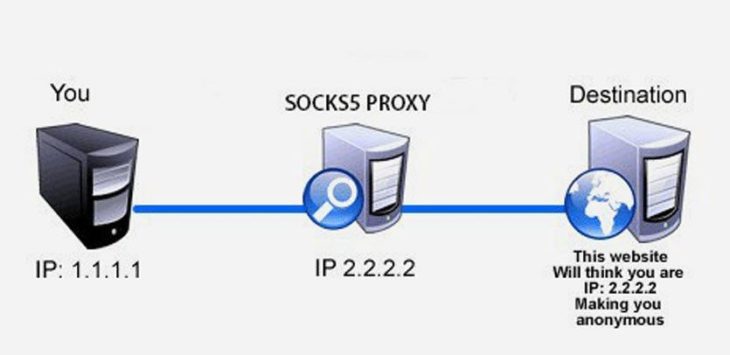
When you use a SOCKS proxy server, your traffic appears to originate from the proxy’s IP address, not your own. For example, if your IP is 1.1.1.1 and the proxy’s IP is 2.2.2.2, the destination website will recognize the request as coming from 2.2.2.2, masking your real IP and providing anonymity.
However, unlike VPNs, SOCKS proxies don’t encrypt your traffic, leaving it vulnerable to potential surveillance.
4. What is SOCKS5?
SOCKS5, the most advanced version of the SOCKS protocol, offers improved security with three authentication methods:
- Null Authentication: No credentials needed to connect to the proxy server.
- Login/Password Authentication: Requires login details for proxy server access.
- GSS-API Authentication: Utilizes operating-system-level authentication for both user and server identity verification.
SOCKS proxies are often used in scenarios where TCP connections are restricted, and only UDP is permitted. However, these connections are sometimes exploited for illegal activities like unauthorized streaming.
5. Advantages of SOCKS5
SOCKS5 proxies are primarily used for bypassing website blocks and hiding real IP addresses, often to circumvent corporate or government restrictions. For instance, if a site has blacklisted a specific IP, a SOCKS5 proxy can provide access. However, they have limitations; deep packet inspection (DPI) by ISPs can block traffic before it reaches the site, rendering a proxy ineffective.
Key Advantages of SOCKS5 Proxies:
-
No Traffic Restrictions: Unlike HTTP proxies, which are limited to HTTP and HTTPS web pages, SOCKS5 proxies can handle any type of traffic, offering greater flexibility and security.
-
Fast and Reliable Connections: SOCKS5 proxies support both TCP and UDP protocols. TCP ensures reliable packet delivery, while UDP doesn’t prioritize packet order, leading to faster data transfer.
-
Reduced Errors, Enhanced Performance: SOCKS5 proxies don’t alter data packet headers, minimizing misdirection and errors, thus improving performance and privacy.
-
Optimized for P2P Platforms: With their ability to transmit smaller data packets, SOCKS5 proxies are ideal for P2P platforms, offering faster download speeds.
Overall, SOCKS5 proxies provide a versatile, secure, and efficient solution for various online activities, especially where anonymity and speed are crucial.
6. Which proxy is better: HTTP or SOCKS?
Proxies come in various types, with HTTP and SOCKS being the most popular. They differ in aspects like anonymity levels, information transmission methods, and other features. To determine which type of proxy is more suitable, it’s important to examine their functionalities and how well they meet user needs.
7. HTTP proxies
HTTP proxies, standard and commonly used in web browsers, are somewhat outdated as they only support unsecured protocols. Key characteristics of HTTP proxies include:
- Restricting access to web resources and potentially reducing connection speed.
- Filtering data on web resources.
- Caching data to save a copy of the resource, which helps reduce bandwidth load and speeds up loading times.
Their operation is straightforward: when a browser requests a site, the HTTP proxy retrieves the information from the site and delivers it to the user.
8. SOCKS5 proxies
Currently, SOCKS is the preferred protocol for data transfer, especially for applications not using an intermediate server. It has evolved significantly, with SOCKS5 being the latest and most recommended version.
Unlike HTTP proxies, SOCKS proxies are inherently anonymous, as they transfer network traffic without altering or inspecting HTTP headers. This means the destination server won’t detect proxy usage or see your real IP address. Connections established through a SOCKS proxy appear as if you’re directly interacting with the website, enhancing anonymity and efficiency.
9. SOCKS5 vs HTTP
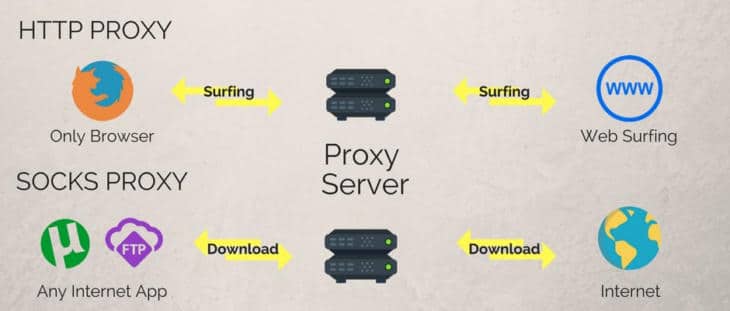
The key difference between HTTP and SOCKS proxies lies in their handling of data. HTTP proxies use common network traffic processing schemes:
- Tunneling: Combines data and functions of multiple network protocols into a single component.
- Caching: Creates an intermediate buffer for data storage.
In contrast, SOCKS5 proxies process all network traffic internally, without redirecting it to the user. This approach minimizes the amount of data sent over the external network, reducing the risk of IP address detection.
Usage also differs between the two:
- HTTP Proxies: Primarily used for accessing network resources through a web browser.
- SOCKS Proxies: Designed for compatibility with a variety of protocols, not just web browsing.
9.1 Comparing different types of proxies
| HTTP | HTTPS | SOCKS5 | |
| Pages caching, fast load | yes | yes | yes |
| HTTPS (SSL) connection support | x | yes | yes |
| Completely anonymous protocol | x | x | yes |
10. SOCKS5 vs VPN
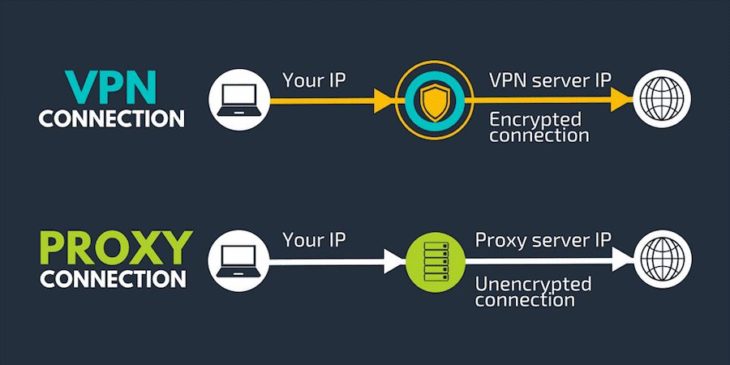
The primary distinction between using SOCKS5 proxies and VPNs lies in their anonymity levels. VPNs encrypt all transmitted data, which SOCKS5 proxies do not do. It’s crucial to recognize that while proxies can hide your IP address and bypass certain restrictions, they are not inherently privacy tools.
Proxy users are susceptible to tracking and interception of their traffic. However, combining a proxy with a VPN can offer both good speed and enhanced protection of sensitive information. VPNs generally provide more stable connections compared to proxies, which may drop more frequently. Notably, if a proxy connection drops, data transfer ceases, whereas with a VPN, your device reverts to a direct, unprotected connection.
10.1 Will a free VPN work?
It’s advisable to steer clear of free proxies and VPNs due to:
- Poor Performance: Free proxies often have subpar support, limited configuration options, and slower infrastructure.
- Privacy Risks: Without being a paying customer, your data might be tracked and sold to third parties by free proxy services.
Opting for a premium proxy is the better choice, as it ensures superior speed, support, and security.
11. Pros and cons of SOCKS5 proxies
Pros:
- Versatile Traffic Handling: Suitable for all types of traffic, not limited to web pages.
- Anonymity: Assigns a new IP address without revealing your original one.
- High Performance: Ideal for traffic-intensive applications.
Cons:
- No Encryption: Not suitable for transferring sensitive data due to lack of encryption.
- Limited Application Support: Not all applications are compatible with SOCKS5 proxies.
- Cost: Generally more expensive than HTTP proxies.
12. Summary
SOCKS5 proxies are effective for various online activities, enabling access to restricted resources and concealing your real IP address. However, not all providers offer SOCKS5 proxies that may suit your specific needs.
We earn commissions using affiliate links.
![6 BEST Socks5 Proxies 2024 [Residential & Private]](https://www.privateproxyguide.com/wp-content/uploads/2020/08/best-socks5-proxies-700x368.jpg)
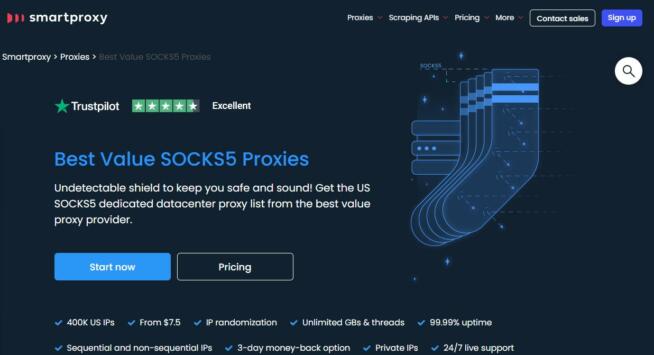
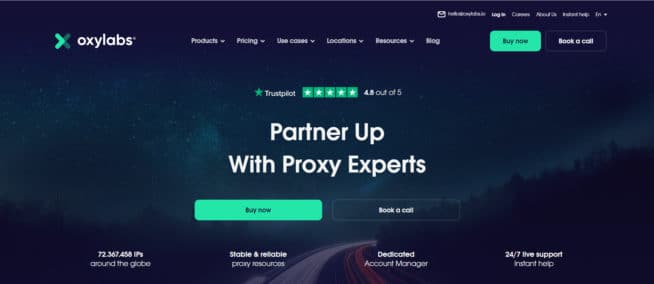
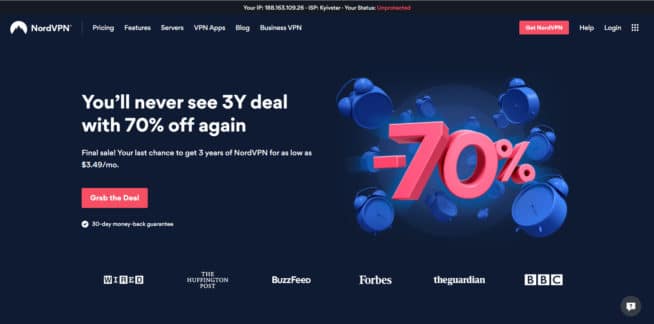
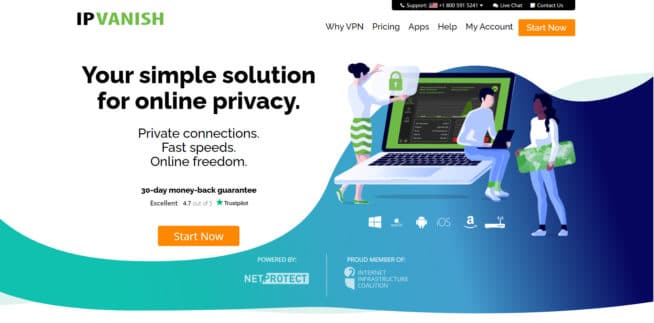
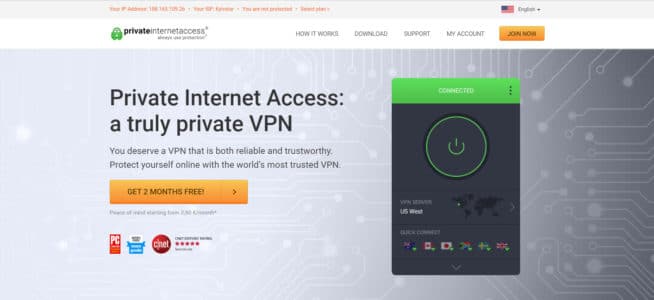
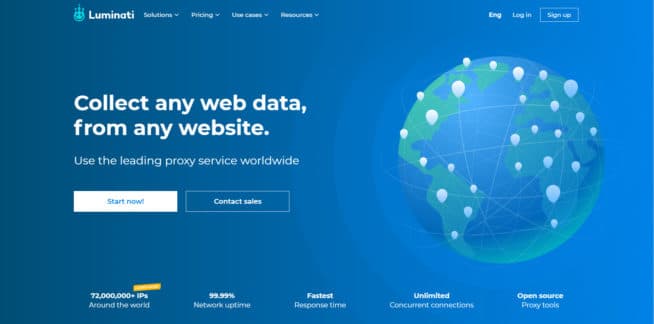
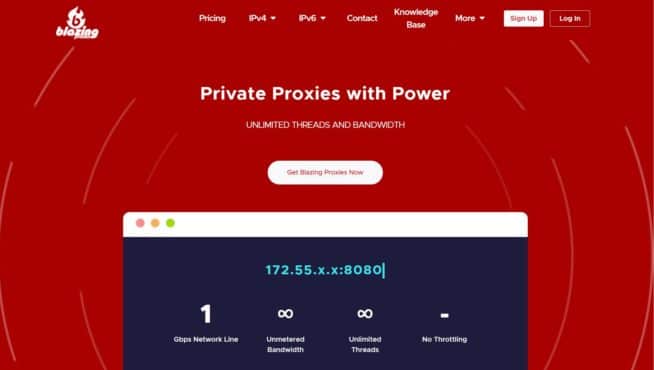
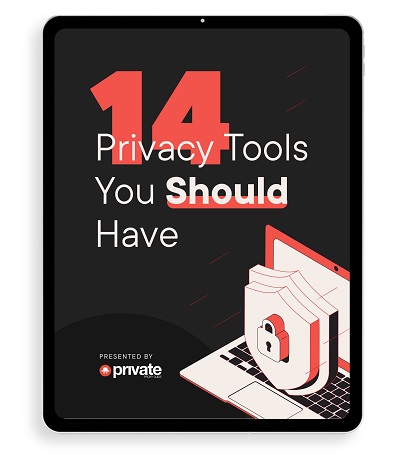
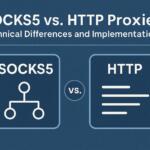

![10 Best Residential Proxies: Top ISP Options for [year] Best Residential Proxy Providers 2024](https://www.privateproxyguide.com/wp-content/uploads/2021/03/best-rotating-residential-proxies-2021-150x150.jpg)
![Best Instagram Proxies 4G/5G & Residential Proxy List [year] 19 BEST Instagram Proxies 2021 [LTE 4G & Mobile Proxies]](https://www.privateproxyguide.com/wp-content/uploads/2019/01/Best-Instagram-Proxies-150x150.jpg)
![Best Craigslist Proxies 5 BEST Craigslist Proxies for Posting 2021 [& Promo Codes]](https://www.privateproxyguide.com/wp-content/uploads/2019/01/best-craigslist-proxies-150x150.jpg)
![Best Ticketing & Ticketmaster Proxies [year] Complete List 5 BEST Ticketing & Ticketmaster Proxies 2021 [Complete List]](https://www.privateproxyguide.com/wp-content/uploads/2019/01/Best-Proxies-for-ticketmaster-ticketing-1-150x150.jpg)
![Best Mobile Proxies [year] Fast, Secure & Reliable Solutions Best Mobile Proxies](https://www.privateproxyguide.com/wp-content/uploads/2022/11/Best-Mobile-Proxies-150x150.jpg)
![High Proxies Review [year] – Features, Pros & Cons Explained High Proxies Review](https://www.privateproxyguide.com/wp-content/uploads/2017/06/highproxies-150x150.jpg)
![Blazing Proxies Review in [month] [year] Blazing Proxies Review](https://www.privateproxyguide.com/wp-content/uploads/2017/07/blazing-proxies-150x150.jpg)
![Squid Proxies Review: Proxy Service for Businesses [year] Squid Proxies review](https://www.privateproxyguide.com/wp-content/uploads/2017/11/squid-proxies-150x150.jpg)
![Ghost Proxies Review: Secure and Fast Proxy Solutions [year] Ghost Proxies Review](https://www.privateproxyguide.com/wp-content/uploads/2017/11/ghost-proxies-150x150.jpg)

SOCKS5 servers are no longer available at NordVPN. Only a dozen of servers are remaining but the company plan to stop providing this protocol anytime soon.